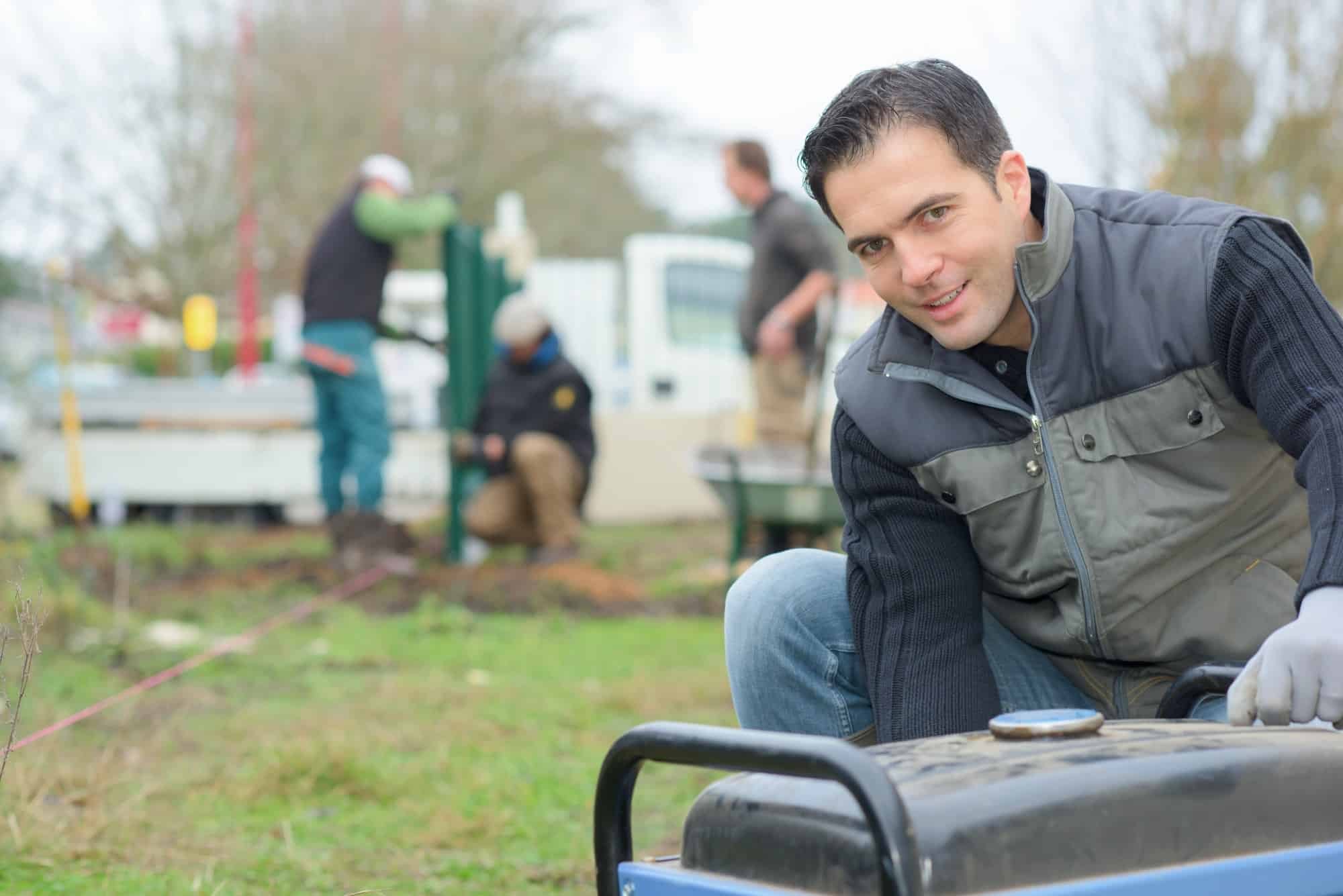I don’t need to tell you that gas generators are useful. In fact, they can be life-saving! But they can also be very large.
Not all of us are blessed with ample storage room. Some of us had ample storage room, but 3 kids later and we’ve somehow ran out. Because of this, some folks feel like buying a generator for home use is impossible.
And other folks (like I suspect you’re thinking right now) start wondering if they can run their generator somewhere… unconventional. Like beneath their porch or deck!
So down to brass tacks — can you run a generator underneath your porch? What about inside of a dog house? The answer to both of those questions is “pretty much no,” but we’re going to help you find the safest place to run your gas generator.
Where you shouldn’t put your generator
Let’s get the bad ideas out of the way first. Once we see where we shouldn’t be putting our generator and why we shouldn’t be putting it there, the places we pick will make a lot of sense!
Underneath your porch
Much like grilling under a covered porch, the main risk of using a generator in an enclosed space is the increased risk of carbon monoxide poisoning. Because of this, we (and the CDC) do not recommend running a generator underneath your porch.
While folks don’t typically congregate beneath your porch’s wood slats, there’s an increased risk of developing a high concentration of carbon monoxide above the porch itself. While an open, airy porch might be okay, I’m still not going to endorse it. I just won’t.
However, if you insist on running the generator underneath your porch, at least do yourself the courtesy of a simple airflow test.
- If you turn the gas generator on and smell the exhaust while standing 6 feet away, you do not have adequate airflow.
Even then, I would buy a carbon monoxide detector to place outside where people will actually be standing. Carbon monoxide is odorless, so there’s still a risk!
Inside of a doghouse. Really?
After doing a preliminary search on the web, you might have found a group of folks that suggest putting the generator inside of a doghouse. Do not do this!
In addition to the safety considerations, the lack of airflow can cause serious damage to your generator! Overheating is a major concern and can lead to engine trouble and even fires (we cover this fully in our gas generator safety guide) (we cover this fully in our gas generator safety guide). Not only that, it’s doubtful that you’ll find the correct size for your particular generator setup anyway.
Finally, it makes any portable generator setup a lot less portable. Just avoid using a doghouse as a generator shelter.
Why be so cautious?
It may sound like we’re being too cautious, but carbon monoxide poisoning takes very little time to set in. Here’s an example from the CDC of how little time it takes:
A farm owner died of CO poisoning while using an 11-horsepower, gasoline-powered pressure washer to clean his barn. He had worked about 30 minutes before being overcome.
– the CDC
While that was inside of an enclosed space, the farmer was a fully grown man. A child would succumb in a much shorter time-frame.
Where should you put your generator
I’m not simply going to rain completely on your parade without giving you a ray of hope here. There are other places that you can run your gas generator. Some you might not have thought of yet!
Pop-up Sheds
Pop-up generator sheds are pre-built structures you can buy to place in your backyard. They are built for storing most anything: garbage cans, tools, and garden accessories. However, they can also be perfect for storing and running your gas generator!
You’re probably wondering what makes these durable, resin structures also ideal for generators. The answer lies in their broad double doors!
Simply swing them wide open and your generator is no longer running in an enclosed space. Some sheds even allow you to swing the top open, allowing additional airflow.
There’s one major caveat to this option though: if your generator produces a lot of heat, you can permanently damage the structure. While the resin is thick and durable, high temperatures can warp or even burn the sides. You should not let the generator run unattended if you choose to install a pop-up shed.
Additionally, consider letting the engine cool again before closing everything back up.
GenTent
GenTents are portable canopies designed to allow the user to safely run their portable generator outside in any weather. Unlike other enclosures, GenTent’s patented design does not impede airflow or restrict the generator operation in any way.
They’re also typically cheaper than stationary storage sheds, making them an attractive option much easier on the pocketbook.
However, there is one drawback.
This really sin’t a place to “put” your generator while it runs. The GenTent simply allows you to run your generator anywhere no matter the weather. Seriously, rain, sleet, snow, and wind are no match for one of these puppies.
With that being said, you’ll have to actually store the generator indoors. A garage, storage shed, or underneath an awning would work fine.
Other considerations
Check your local ordinances
Your local municipality might have specific laws and regulations surrounding generator placement. A permit might even be necessary!
You might be inclined to think it’s none of their business, but public safety is definitely top of mind for local governments. And honestly, the last thing you want is a hefty fine for storing or using your generator improperly.






